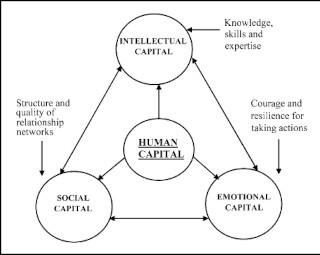[From Unsplash]
Good morning,
In Make Your Art No Matter What Beth Pickens, a consultant for artists and art organisations, shares some wonderful advice that applies not just to artists but to people in all professions.
One of the key issues she deals with is rejections. Artists tend to have many asks—grants, residency programmes, collaborations, art projects—and as a result inevitably face rejections.
Pickens writes, “When you ask for something, however formal or informal the request, your control ends with the asking. You are powerless over what happens next.”
So, you have to get comfortable with getting no for an answer. “Learning to get more comfortable with ‘no’ will dramatically change your experience. You will be rejected from opportunities to which you apply; it’s an inevitable outcome for every artist who tries for things.”
Based on this reality, she offers two practical pieces of advice.
One, seek rejections. She writes, “I know an artist who made a goal for herself to reach twenty rejections. That means she had to apply to and go after a lot of opportunities. What happened along the way, of course, was that in addition to many rejections, she got some of what she asked for: funding, exhibitions, and residencies.”
Two, experience the other side of the table. She writes, “Seek opportunities to be on panels, juries, and selection committees. You’ll learn a great deal about what makes a strong application and you’ll see how hard it is for gatekeepers to make these decisions. Being on the other side helps you depersonalise your own rejection experiences.”
Have a great day ahead!
You as business and proprietor
We were pointed to the significance of a paper co-authored by Lynda Gratton and Sumantra Ghoshal late last week. First published in 2003 in the European Management Journal, Gratton and Ghoshal now sound prescient about how the relationship between employers and employees will change; and why it is imperative that people take charge of personal learning agendas.
They quote Andy Grove, former chairman of Intel Corporation who made the case to his people that “No matter where you work, you are not an employee. You are in business with one employer—yourself—in competition with millions of similar businesses worldwide… Nobody owes you a career. You own it as a sole proprietor.”
Gratton and Ghoshal begin by setting context: “changes in the demographics of most countries have placed young talent at a premium across the globe, and with this ‘war for talent’ has come the opportunity for the new generation to shape the way they work. At the same time the ‘generational markers’ of those entering the workforce are very different from those of the ‘baby boomers’ who are currently running industry. The new entrants prefer working in teams, demand an exciting and stimulating work environment and, most importantly, value autonomy in career. Many have seen their parents sacrifice their personal needs to meet company requirements. They have vicariously experienced the tragedies of the ‘organisational man’ (Whyte, 1956) and are determined not to fall victim to the forces of depersonalisation in the traditional model of individual-organisation relationship.”
This raises questions. “What things do people have that are productive resources? What is it about people that translates into value for themselves and the organisations of which they are part?”
They go on to make their case. “We believe that there are three kinds of resources that people possess which, collectively, constitute their individual human capital.”
The illustration below puts it into perspective.

However, they caution that “In a fast changing world, all the elements of human capital erode rapidly—knowledge becomes obsolete unless it is updated, relationships weaken unless they are continuously refreshed, self-efficacy and courage diminish unless exercised. Each individual has to become aware of these risks of diminution and make active choices about where to work and what to build based on that awareness.”
They urge readers to embrace four characteristics
Ethos #1: The courage to become who you are
Ethos #2: From an asset to an investor
Ethos #3: Everyday, be the dumbest you can be
Ethos #4: Work the boundaries
Dig deeper
- Managing Personal Human Capital (Request access to full paper on ResearchGate)
- Managing Personal Human Capital (Scribd.com for access)
To get rich, own an unsexy business
Seth Stephens-Davidowitz, author of Don’t Trust Your Gut: Using Data to Get What You Really Want in Life, has an interesting piece in The New York Times that looks at some research on rich people and happiness. Almost everyone understands that rich people get rich not by earning salaries, but by owning a business. Besides wealth, entrepreneurship can also generate glamour (imagine your face on the cover of a Forbes or Fortune). That glamour can hide an interesting insight about getting rich—that rich people tend to own unsexy businesses.
Davidowitz points to a study, by the statisticians Tian Luo and Philip B. Stark, which looked at the opposite—which ones to avoid.
The study, Davidowitz writes, “examined which businesses were most likely to fold fastest. The kind most likely to go out of business most quickly is a record store. The average record store lasts just 2.5 years. (For comparison, the average dentist’s office lasts more than 19.5 years.) Other businesses that fold quickly include toy stores (3.25 years), clothing stores (3.75 years) and cosmetics stores (4.0 years).
“There are, however, plenty of unsexy businesses from which a few people are getting rich. These include auto repair shops, gas stations and business equipment contractors.”
Dig deeper
What a heat wave does

(Via WhatsApp)
Found anything interesting and noteworthy? Send it to us and we will share it through this newsletter.
And if you missed previous editions of this newsletter, they’re all archived here.
Warm regards,
Team Founding Fuel


